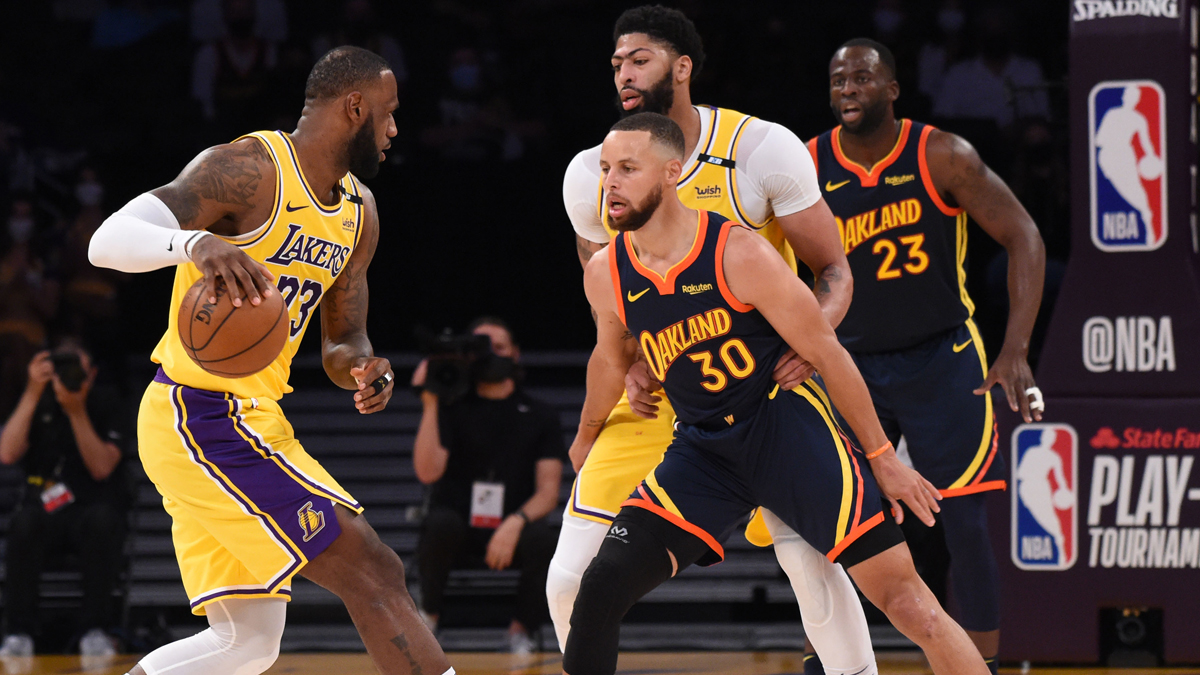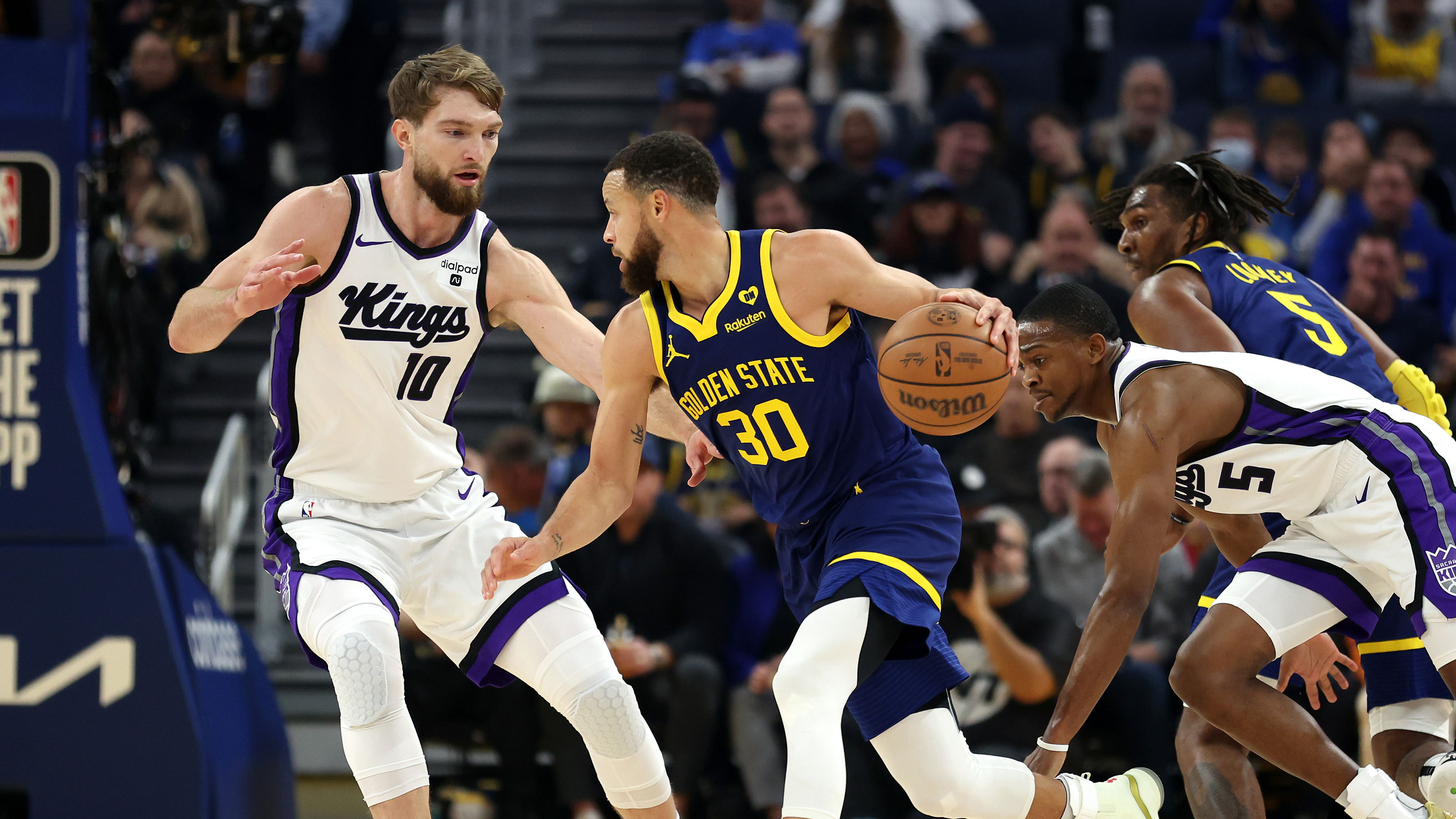LeBron James put himself on a collision course with the Warriors a decade ago Wednesday.
Few would've guessed as much when James, then 25 years old and already the best basketball player on the planet, told Jim Gray and viewers nationwide that he'd take his talents to South Beach and join the Miami Heat. James, after all, was leaving one of the saddest franchises in NBA history, spurning the Cleveland Cavaliers to link up with close friends Dwyane Wade and Chris Bosh. The Warriors, then 35 years removed from their last NBA championship and a year away from drafting Klay Thompson, didn't have anything to do with it.
But James' departure from Cleveland planted the seeds for the prodigal son's return four years later, and the kid from Akron's titanic decision to leave set him on a path that would become inseparable from Golden State's by the end of the 2010s. You can trace the roots of the Warriors' cross-conference rivalry with the Cavs, as well as Kevin Durant's decision to sign with Golden State, to "The Decision" a decade ago.
Stay in the game with the latest updates on your beloved Bay Area and California sports teams! Sign up here for our All Access Daily newsletter.
James and the Cavaliers were the Warriors' biggest obstacle during their dynastic run, with the teams squaring off four straight times in the NBA Finals. But he might never have stood in Golden State's way if he never left Cleveland.
[RUNNIN' PLAYS PODCAST: Listen to the latest episode]
While James surely could've done without the instantaneous, visceral backlash from his hometown fans, or the childish letter penned in Comic Sans by Cavaliers owner Dan Gilbert, he told Lee Jenkins -- then with Sports Illustrated -- in 2014 that he always knew he was going to return to Cleveland at some point.
"When I left Cleveland, I was on a mission," James said at the time. "I was seeking championships, and we won two. But Miami already knew that feeling. Our city hasn’t had that feeling in a long, long, long time. My goal is still to win as many titles as possible, no question. But what’s most important for me is bringing one trophy back to Northeast Ohio."
Golden State Warriors
The Cavaliers seemingly prepared for the possibility, too. Going an NBA-worst 97-215 in James' absence helped Cleveland compile high pick after high pick who would either play alongside James (Kyrie Irving and Tristan Thompson) or be used in trades to acquire other pieces (Dion Waiters, Anthony Bennett and Andrew Wiggins). If James stays in 2010, it goes without saying the Cavaliers aren't picking in the lottery over the next four years. Former general manager David Griffin and the Cavs' front office instead eventually built a contender around James, whereas Griffin's Miami counterparts would've had a much more difficult time remaining one.
Even if James stayed with the Heat, president Pat Riley and general manager Andy Elisburg were without multiple first-round picks thanks to the sign-and-trades that brought James and Bosh to the Heat in the first place. Young talent was needed, in hindsight, as Wade got older and Bosh eventually retired due to his blood clotting condition. Miami couldn't have provided that, and it's thus difficult to envision James as the Warriors' nemesis while staying on South Beach.
James still would've been close to the peak of his powers, but the Heat wouldn't have been as formidable a challenge for the Warriors as James' Cavaliers were in their first two Finals matchups. A hypothetical Warriors-Heat Finals in 2015 probably is even more one-sided than the San Antonio Spurs' gentlemen's sweep of the Heat a year prior, and who's to say if Miami would've remained on its Eastern Conference perch much longer than that.
Leaving Cleveland also indirectly ensured the Cavaliers wouldn't win more than one championship during James' second stint in Ohio. James' decision led to backlash in the league's front offices, too, ensuring the institution of a harsher luxury tax. The Oklahoma City Thunder ultimately justified trading James Harden because of said luxury tax, as Tim Bontemps noted while writing for The Washington Post in 2016, which surely contributed to Kevin Durant's eventual departure for the Warriors. James' decision also showed superstars that they could control their own destinies, narratives be damned.
[RELATED: Wild stats from Steph's first game vs. LeBron's Heat team]
If the Heat's Big 3 never forms, does the NBA's next collective bargaining agreement even include a provision designed to stop free agents from forming super-teams? If the Thunder never break up, do the Warriors ever get past a team led by Durant, Harden and Russell Westbrook? If James stays in Cleveland, is a player of Durant's caliber even willing to leave OKC in the first place?
When James said those infamous seven words 10 years ago, nobody could've known he was charting a path that inevitably would intertwine with the Warriors' own. Had James' decade-old decision gone differently, the Warriors' recent past would look unquestionably unrecognizable.


